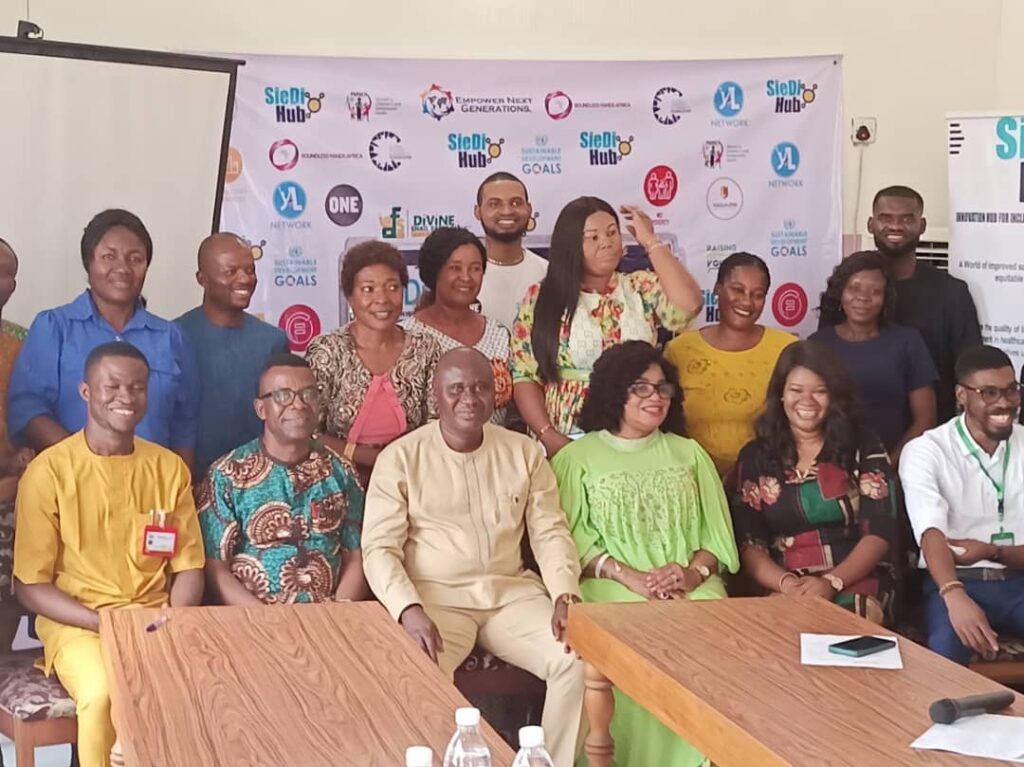Stephen Ukandu, Umuahia
Stakeholders have raised alarm over the use of chemicals to harvest fish in Nkporo Community in Ohafia Local Government Area of Abia State.
The stakeholders including health workers and Non-Governmental Organisations, NGOs, equally expressed concern over lack of potable water as well as the deplorable condition of Primary Health Care, PHC centres in many communities across the state.
Worried by the grave danger associated with the consumption of fish harvested with chemicals and water contaminated with chemicals, the stakeholders called on Traditional Rulers and Town Union Executives, to quickly ban the use of chemicals for any activity in their streams.
This is coming on the heels of a report of a recent survey that fishermen in Nkporo Community still use chemicals and treated-mosquito nets to harvest fish, thus, introducing harmful chemicals to both the fish and water which is the only source of drinking water in the community.
The survey which was conducted by a non-governmental organisation, Innovation Hub for Inclusiveness, Empowerment, and Social Development (SieDi-Hub), revealed that consumers of both the fish and water contaminated by the chemicals are at the risk of cancer and dangerous water-borne diseases.
According to the report presented during a press conference in Umuahia to mark the NGO’s first anniversary, the health care sector in the state needs urgent intervention as the primary health centres across the state lack the basic amenities.
“The assessment survey presented the need for clean drinking water in Nkporo Community where the stream is the only water source.
“Respondents decried fishermen’s economic activities using treated mosquito nets and formalin for their fishing activities, polluting the only water source.
“Intake of contaminated water introduces micro-organisms, bacteria, and harmful chemicals into the body, which cause water-borne diseases and infections such as diarrhea, typhoid, dysentery, and cholera, and deterioration of the kidney and liver,” the report said.
The survey further noted that “Abia State healthcare sector faces the burden of poor health funding,” adding that “implementing health policies, programmes, and projects has been a major challenge.”
It said the overall state health budget “has been at the average of 7%, which is below the 15% agreed threshold of the Abuja Declaration.”
The report further noted that “Abia has 1,282 health facilities in 292 wards of the state,” but regretted that “most facilities lack basic drugs, equipment, and skilled health personnel.”
It identified malaria, diarrhea, acute respiratory tract infection, malnutrition, birth asphyxia, sepsis, HIV/AIDS, and meningitis as the leading causes of morbidity and mortality in the state.
“Most of these deaths could be reduced with a robust primary healthcare delivery system,” the report said.
The assessment survey further presented the need for more basic essential drugs, vaccines, consumables, injectables, and equipment at the Primary Health Care, PHC, centres.
The report revealed that the PHCs have a poor distribution of health workers “as most facilities only have auxiliary staff while also complaining of the poor maintenance of the facilities and equipment as most of the buildings are in dilapidated state.”
“This situation stalls the delivery of inclusive and responsive health care for the community members as they rely on private hospitals, patent drug dealers, and traditional medicine,” the report said.
The report further identified the critical health needs of women of reproductive age in the communities as lack of sanitary materials such as pads, soaps, deodorants; and inability to afford basic family planning services such as contraceptives.
The survey recommend that the State Ministry of Health should work towards meeting the provisions of the National Health Policy as an indicator for Universal Health Coverage.
It further recommend that the Ministry of Health, Primary Healthcare Development Agency, and collaborating agencies should strengthen the governance and accountability of the Ward Health System to improve the quality of care in PHCs within Nkporo by establishing Community Governance Structure for Health.
“The facilities should have a clear system to facilitate access to drugs and other health commodities needed to provide essential community health services,” the report added.
It also recommended that the Ministry of Health and Abia State Primary Healthcare Development Agency should deploy trained community health workers, doctors, nurses, and allied health professionals to PHCs in rural communities.
“The Ministry of Health, Primary Healthcare Development Agency, and collaborating agencies should improve funding for PHCs across rural communities in the state,” it said.
Earlier in his address, SieDi-Hub Community Engagement Coordinator, Jonathan Ajuma, said the NGO was committed to engage the state and relevant stakeholders through advocacy to ensure the strengthening of the health facilities to deliver more inclusive and responsive care.
“Our mission is to improve the quality of life for people living in rural communities through advancement in healthcare, sustainable livelihoods, empowerment, and socio-economic initiatives using approaches that are inclusive and innovative,” he declared.
In a remark, SieDi-Hub Founder, Chinasa Imo, said the NGO “exists to build a community of women and youths equipped and competent to influence measurable and sustainable changes in the society, partnering with relevant government institutions and NGOs for improved service delivery to the people especially in rural and under-served communities.”
In a remark, the Permanent Secretary, Ministry of Health, Mrs Franca Ekwueme, thanked SieDi-Hub for the surgery, and noted that all the challenges observed would be addressed.
She, also appealed to traditional rulers to help stop the use of chemicals for fishing or any activity in community streams considering the adverse health implications of such chemicals.
Mrs Ekwueme restated the determination of the State Government to collaborate with necessary stakeholders and NGOs to improve on health care delivery.

